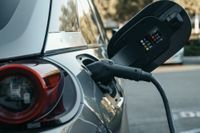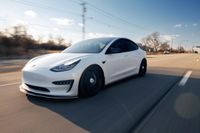The Hybrid-Car Dilemma
Americans are falling in love with hybrids. Why don't car companies want to make them?

The Rise of Hybrids
Hybrids are gaining popularity among American consumers. While electric vehicle (EV) sales are experiencing challenges and uneven demand, some carmakers are seeing growth in hybrid sales. According to the U.S. Energy Information Administration, hybrids now account for almost 10 percent of new car sales, a significant increase since 2020.
Unlike EVs, hybrids still rely on gasoline and emit tailpipe emissions. However, they generally create less pollution than purely gas-powered vehicles. For example, the latest Toyota Sienna minivan, available only in hybrid form, has nearly half the CO2 emissions of its non-hybrid predecessor.
The Hybrid Dilemma
Despite the surge in popularity, carmakers are facing a dilemma regarding hybrids. As they face the costs of transitioning to EVs, ensuring profitability, and meeting shareholders' demands, they struggle to decide whether hybrids are a bridge to an all-electric future or if they have already become obsolete.
Developing and building hybrids requires significant time and money, which carmakers are prioritizing towards electrifying vehicles. General Motors, for instance, has announced a $35 billion investment in EV and autonomous vehicle development. This makes it challenging for carmakers to justify investing in hybrid powertrains that still rely on gas engines.
Mixed Approaches to Hybrids
Different carmakers have varying levels of commitment to hybrids. While some continue to offer hybrid options, others are focusing primarily on EVs. For instance, Ford has adjusted its production goals to prioritize hybrids, doubling the production of its hybrid model F-150. On the other hand, General Motors and Volkswagen are leaning towards bypassing hybrids and investing solely in EVs.
The industry's mixed approaches to hybrids create uncertainty for consumers who are looking to save on gas but are wary of fully transitioning to EVs. Rapidly changing consumer trends, fluctuating gas prices, and investor pressure further complicate the task of aligning car lineups with the market.
While more hybrid models are expected to enter the market, the future of hybrids remains uncertain. The development of EV-charging networks and the falling cost of battery packs may make EVs more affordable and appealing, rendering hybrids less relevant.


